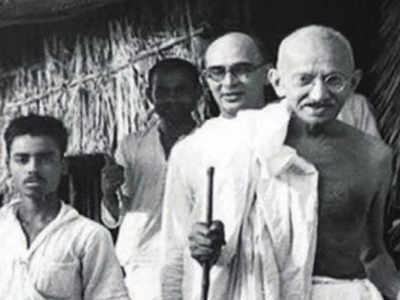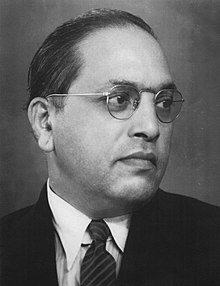It was the year 1917. Exporting Indigo (Neel) was such a huge profit making business that the Britishers who were even working in a government job would leave their job to do this. For its profit making ability, Indigo came to be known as ‘Blue Gold’. Indigo was used to make dye. It was used especially on pants to give them a blue colour which would further give them a good look even after many years. Poor peasants were forced to grow Indigo for free or very little wages on the land occupied or leased by Britishers. The peasants were made to grow Indigo on every three out of twenty kathas in one bigha of land (The Tinkathia System). They repeatedly requested the government to conduct an enquiry on it but of no use.
Raj Kumar Shukla, a peasant belonging to Champaran, Bihar, came to Lucknow along with an advocate Braj Kishore Prasad on 27th December, 1916 during Congress’ 31st session to describe the agrarian trouble and poor conditions of Indigo planters of Champaran. The proposal was passed in favour of the farmers of Champaran in the session but Raj Kumar Shukla knew that only passing a proposal would not work. He could also sense the lack of interest of the Congress leaders in the issue. Therefore on the previous night itself, he had gone to personally meet three tall leaders of the Congress in their tents to individually ask them to come to Champaran. Firstly, he went to Bal Gangadhar Tilak and explained to him the miserable conditions of the peasants of Champaran. Tilak sympathised with him but refused to go to Champaran as he was working on the idea and implementation of ‘Swaraj’. Second was Madan Mohan Malviya who also refused on more or less similar grounds. Lastly he went to Mohandas Karamchand Gandhi and took advocate Braj Kishore Prasad with him. Shukla had not seen Gandhi before and therefore, when they went to Gandhi’s tent, he was shocked to see a simple man who was barefooted and wearing kurta-pyjama. For a moment, Shukla thought ‘How is this man going to fight the Britishers. Would Britishers be scared of him and would the farmers even take him seriously and trust him’ but he remembered the words of a young journalist ‘Ganesh Shankar Vidyarthi’ who had told him to bring Gandhi to Champaran as Gandhi knew how to defeat Britishers because he had already done so in South Africa. Shukla briefed Gandhi Ji about the poor state of peasants of Champaran but Gandhi Ji did not believe him and said that he can’t do anything unless he had the first-hand information of the conditions of peasants and thus refused to go with Shukla. The next day after the proposal was passed in the Congress session, Shukla again went to meet Gandhi Ji. This time he agreed to come to Champaran.
Finally on 15th April, 1917, Gandhi arrived in the land of Champaran. It was like a festival for the people of Champaran that Gandhi had come to their place. But the administration was scared of Gandhi and therefore, when he arrived, the District Magistrate sent him an order under Section 144 stating that his presence could create unrest to the peace and tranquility of Champaran and therefore he was directed to leave Champaran by the next train. To this, Gandhi Ji replied to the District Magistrate saying that ‘He is sorry that the administration feels that he would cause disturbance to the peace of this area. Due to his public commitments and responsibilities, he cannot leave Champaran. He has only come here to know the plight of the peasants living here and not to create any protests. If the administration finds this as a disobedience of their order then he is ready to face the punishment. And that until he is free, he will continue to do what he has come here for’.
After receiving the reply, Gandhi Ji was booked under Section 188 of the ‘Defence of India Act’.
On 18th April, 1917, a news spread across Champaran that Gandhi would be jailed today for treason (deshdroh). Around 2000 people from nearby cities and villages gathered in the court premises for the proceedings against Gandhi. They were emotional as a person who does not even know them is ready to go to jail for them.
Finally Gandhi Ji entered the courtroom. A group of public prosecutors with thick fat books of law was waiting for him. Gandhi Ji also had two experienced advocates Dharnidar Babu and Ram Navami Babu by his side.
The magistrate George Chander asked Gandhi Ji ‘Who is your advocate’?
To everyone’s shock Gandhi Ji replied ‘I don’t have an advocate’.
People standing over there thought that Gandhi Ji being a barrister at law might be looking to fight the case by himself.
The public prosecutor started the proceedings and accused Gandhi Ji of disobeying the orders rendered by a public servant to leave Champaran and that for this reason, he was liable to be charged under Section 188 of the Defence of India Act.
To this, Gandhi Ji replied to the Court that he had made it clear to the District Magistrate through his reply that he will not leave Champaran. Further Gandhi Ji said…
‘I would like to brief the court on my reasons for disobeying the order given to me under Section 144. This has happened due to a difference of opinion between me and the administration. I was repeatedly called by the local peasants to come to Champaran and look at their plight. Without understanding the cause, I could not help them. I had no other reason to come to this land and I do not believe that my presence would cause a state of unrest here. I also understand the difficulties of the administration as they had to work upon the information available to them. As a law abiding citizen my first responsibility was to obey the order given to me, but I can’t betray the trust of the people who had called me here.
I am aware that as a public figure, I should set an example for others. I firmly believe that in the situation I’m currently in, everybody here should do the same thing that I have done i.e. to disobey the order and be ready to accept the punishment.
I haven’t accepted my disobedience for the matter of reducing my punishment. But because I believe that ‘There is a higher court than the courts of justice and that is the court of conscience. It supersedes all other courts.’
The magistrate had no answer to this. He asked ‘Are you saying that you accept the charges?’
Gandhi Ji replied ‘Without wasting the court’s time, I accept the charges’.
The magistrate did not know what to do and therefore he asked Gandhi Ji that if he would leave Champaran today and promise to never come back, he would remove the charges.
Gandhi Ji replied ‘I can’t do this. Even after completing my punishment, I’ll stay here until the issue is resolved. I’ll make Champaran my home’.
The magistrate was again stunned. He reserved his order to be declared after the recess.
At 3 p.m., the magistrate resumed the court and said that he will deliver the judgement on 21st April and asked Gandhi Ji to pay a security of Rs. 100 for bail.
Gandhi Ji replied ‘Neither I have a person to furnish my bail nor I have 100 rupees’.
The magistrate had nowhere to go. He grabbed his head. Ultimately, he himself furnished the security of Rs. 100 and released Gandhi Ji.
This case caught the attention of the press. It got published across the newspapers of the country. The British government had no way other than to withdraw the case and eventually they withdrew it on 20th April, 1917.
Later a ‘Champaran Probe Committee’ was constituted which had Gandhi Ji as a member. It submitted its report on October 3, 1917 after which ‘The Tinkathia System’ was abolished by way of a law.
This was the first Satyagraha led by Gandhi Ji which came to be known as ‘Champaran Satyagraha’.
This article has been written by Advocate Pranav. For feedback, you may write to him at Pranav . | LinkedIn
Connect with us : Nyay Connection (@nyayconnection) • Instagram photos and videos


